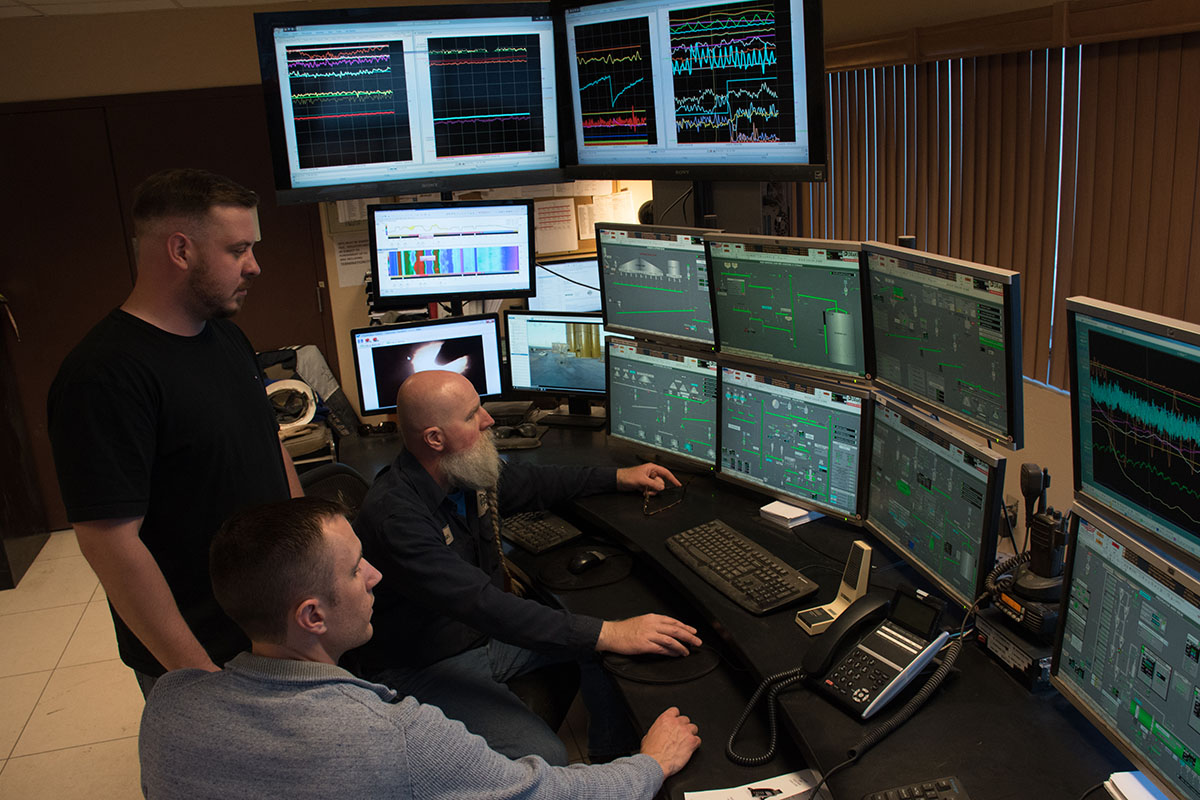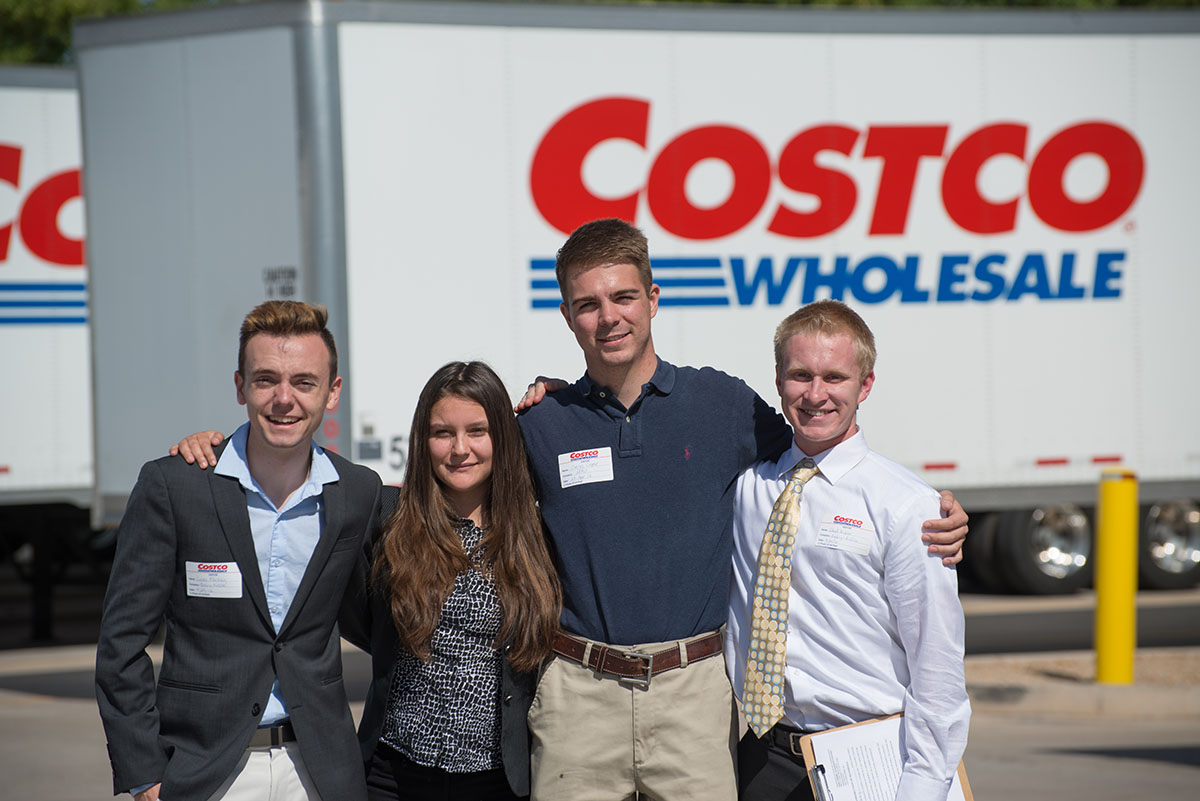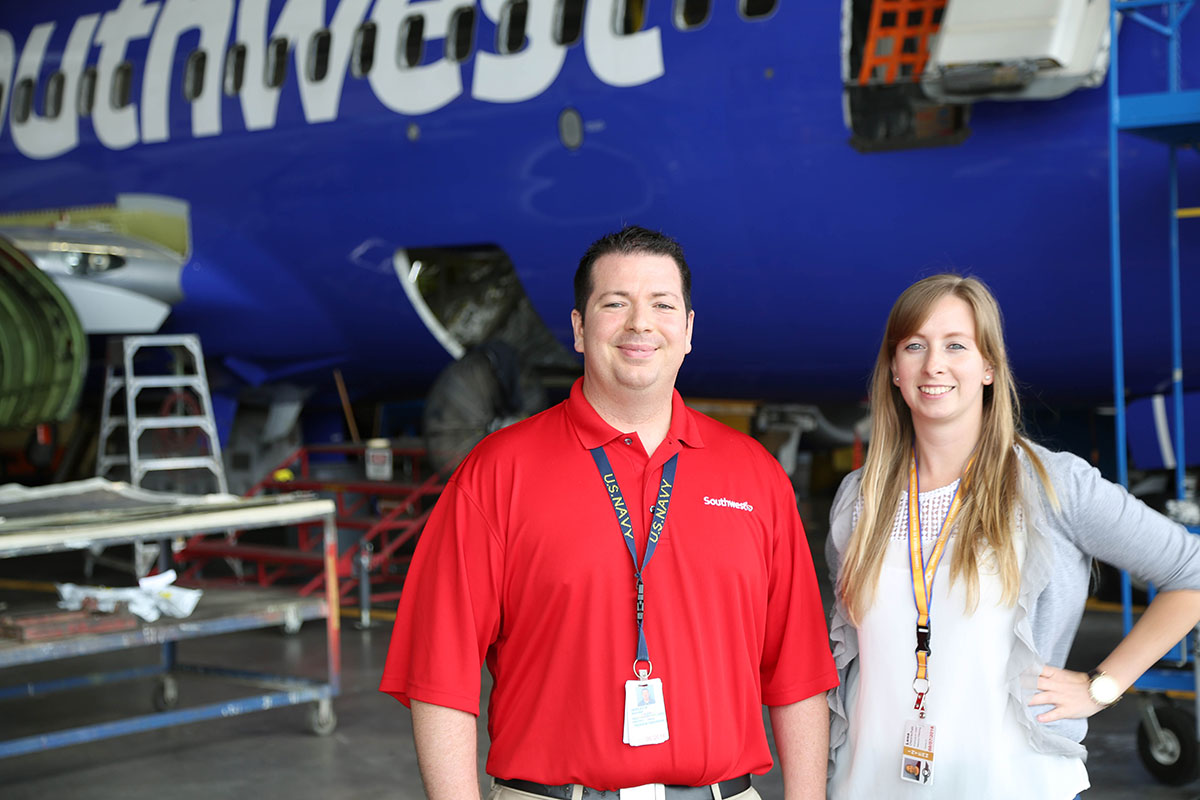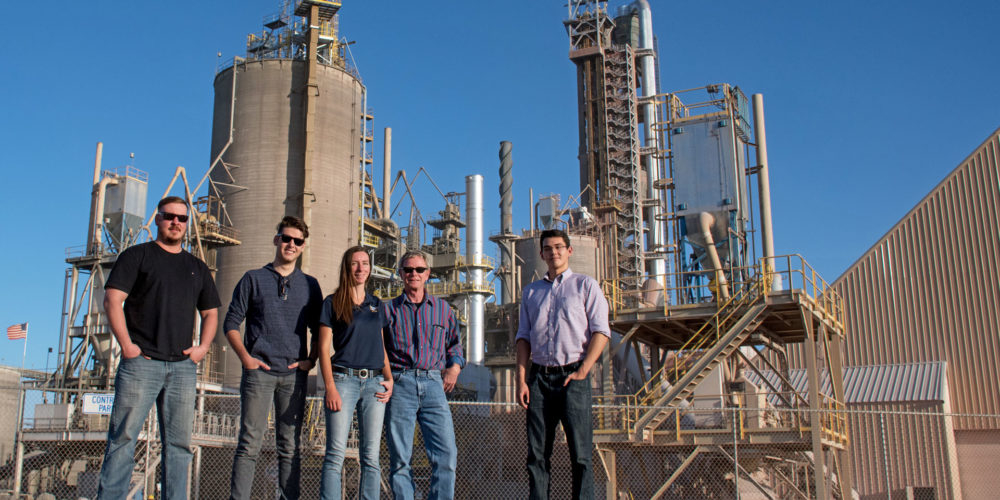Embry-Riddle students are improving the bottom line at businesses around the globe and getting a priceless education in return. In select business classes at both the Prescott and Daytona Beach campuses, the typical textbook case study is replaced by a real-world consulting project that exposes students to all the intricacies and challenges that a classroom can’t.
This isn’t just for the students’ benefit: Businesses reap rewards when someone reviews their operations from the outside. Whether it’s analyzing the use of office space, assessing operational logistics or exploring an entirely new business model, Embry-Riddle student consulting groups provide tangible results.

Prescott Campus business students working with Drake Cement in spring 2016 found ways to make better use of its facility in Paulden, Ariz. Drake sells its cement powder by the truckload, and the truck traffic through the facility was having problems: backups during rush times and trucks stopped on train tracks.
The student team’s analysis showed that rerouting trucks through the facility, installing a series of lights to direct drivers and incorporating a few other improvements could cut the truck throughput time in half. Drake is preparing to put these ideas to use. “Our supervisor in that area thought it was a great solution. We’re looking at implementing it to make that side of the operation more efficient,” says Linda Mitchell, human resources manager at Drake Cement. Drake has two more consulting projects scheduled with student teams for the fall semester.
The Wild West Approach to Learning
About 50 undergraduate students each semester take courses at the Prescott Campus where consulting with an outside company is part of the grade. William Cheek, former business department chair at the Prescott Campus, credits Assistant Professor Rick Gibson for cementing these projects to the curriculum starting in the late 1990s. Gibson relied on the Small Business Development Center at Yavapai College to secure the university’s first business clients, but now a variety of companies routinely request student consulting teams.
Gibson takes a Wild West attitude to guiding students through the consulting projects: Teams work mostly independently, and they can choose to fire underperforming members. “They’ve learned the concepts. I don’t micromanage them; I’ll let them crash and burn. The responsibility adds gravity to the project,” Gibson says.
Costco Wholesale, which rarely hires outside consultants, has worked with Embry-Riddle students on four projects in the past. Though it prefers to keep internal operations close to the vest, John Thelan, senior vice president of depot operations, says letting in high-caliber Embry-Riddle students has been a worthwhile exception. “When you’re in the trenches day in, day out, you tend to look at the world in a certain way. Bringing in students who are hard charging and well educated, you get fresh facts, a fresh outlook. It’s a win-win situation.”

Typically, the student team researches an issue and solutions for it, meeting with company representatives as needed throughout the semester. The work culminates in a formal presentation near the semester’s end. “Presenting results can often be stressful, especially when you have to deliver bad news,” Gibson says. “Sometimes you have to look at the person who hired you and tell them, ‘You’re the problem.’ A lot of students go to client meetings scared to death. That’s good experience.”
Launch. Land. Repeat.
Al Garofalo (’16, PC), a team leader on one of the Costco projects and recent business graduate, transitioned his Embry-Riddle education and consulting experience into a job at Blue Origin. See how he did it at news.erau.edu
Al Garofalo (’16, PC), a team leader on one of the Costco projects who now works at Blue Origin, says the company’s representatives were surprisingly receptive. “A few minutes into our presentation, they realized that we knew a lot about their business and gave us a lot of respect for that. I give a lot of credit to Professor Gibson, who taught us how to be authentic with the client,” he says.
Garofalo’s team developed and tested software for tablet computers to track inventory at a Costco shipping depot. Gibson says the team’s projections showed the technology could improve truck unloading times by as much as 30 percent in some cases.
An Extension of the Industry Advisory Board
At the Daytona Beach Campus, outside consulting has been a part of the College of Business since the Industry Advisory Board was created in 1991, but activity has increased in the last four years, says Mike Williams, dean of the College of Business. Student involvement is less formalized: There are many classes where students can be involved in industry work.
Each faculty member looks for opportunities within his or her professional network—many faculty previously worked in industry—and discusses these opportunities with their colleagues to find the class that best fits each project. “We grow organically. Our reputation has brought additional projects in. It’s a characteristic of the college now,” says Professor John Longshore, who has brought in repeat work from companies like Northrop Grumman and ENSCO Avionics. “Recent research done for ENSCO was used as a basis for a strategic business decision. And, a product developed for Northrop Grumman is in use at this time,” Longshore says.
The primary benefit for students is in the intricacies of applying their knowledge. “We had to learn how to deal with frustrations that arise during the project when not everything seems to work out right away. It was also valuable in the sense that sometimes two parties think they talk about the same thing, but actually there are discrepancies,” says Lena Dworschak, an MBA student who worked on a maintenance scheduling model for Southwest Airlines.

Of course, a strong work ethic is a prerequisite, says Massoud Bazargan, associate dean of research for the College of Business. His classes often involve working with the airline and aviation industries. A recent student analysis of a dual-ramp concept showed that deplaning and boarding time could be cut by 10 minutes on average. “For every minute a plane sits on the ground, airlines lose money,” says Dynamite Obinna, the student research lead for the Aerobridge project. “Over the course of a year this could save airlines millions of dollars, and it would also improve service for passengers.”
“We gave him the tools,” Bazargan says, “and now he can present his research to potential investors.”
The amount of work for students engaging in consulting/research projects can be triple that of a regular class. “But for those who come, it’s not just for a grade. They know what they’re getting into, and they enjoy the challenge of working on real-world projects,” Bazargan says.
At the Daytona Beach Campus, consulting can also pay. Small groups or individuals working on a project might receive a paycheck. “This is as close to the real world as you’re going to get,” Longshore says.
